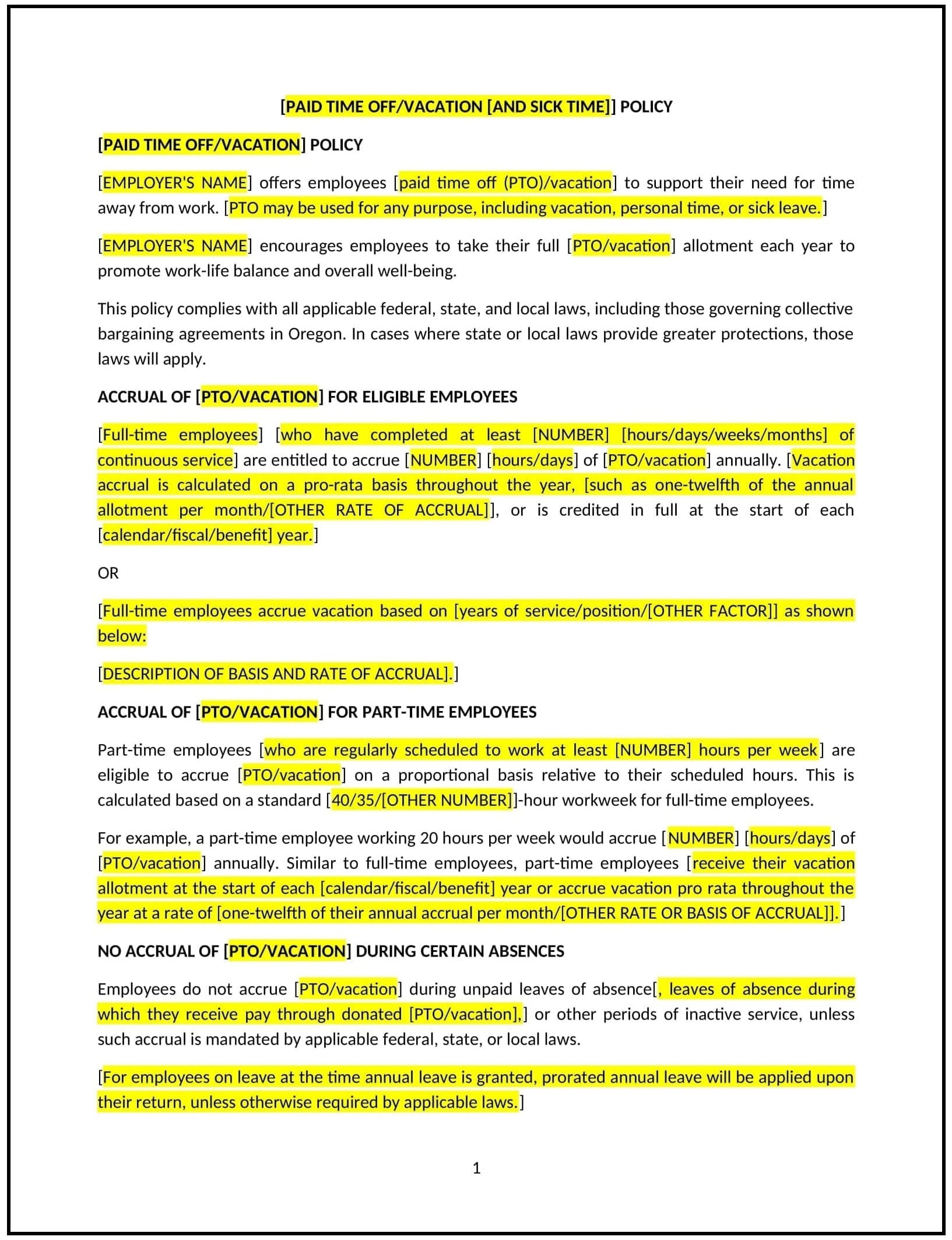Got contracts to review? While you're here for policies, let Cobrief make contract review effortless—start your free review now.

Customize this template for free
Vacation policy (Oregon)
This vacation policy is designed to help Oregon businesses establish clear guidelines for managing employee time off, ensuring a fair and organized approach to vacation scheduling and tracking. The policy outlines eligibility, accrual methods, and procedures for requesting and approving vacation leave.
By implementing this policy, businesses can support employee well-being, maintain productivity, and streamline vacation management.
How to use this vacation policy (Oregon)
- Define eligibility: Specify which employees are eligible for vacation leave based on employment status (e.g., full-time, part-time) and tenure.
- Establish accrual rates: Clearly outline how vacation time is accrued, whether on a monthly, annual, or hours-worked basis.
- Set carryover rules: Indicate whether unused vacation time can be carried over to the next year and if limits apply.
- Develop approval procedures: Require employees to submit vacation requests in advance, following a formal approval process.
- Address scheduling conflicts: Establish guidelines for resolving overlapping vacation requests to ensure business continuity.
- Include payout policies: Specify whether unused vacation time will be paid out upon termination, in accordance with Oregon labor laws.
- Review regularly: Periodically assess the policy to reflect changes in workplace practices or Oregon-specific legal requirements.
Benefits of using this vacation policy (Oregon)
Implementing this policy provides several advantages for Oregon businesses:
- Supports employee morale: Clear guidelines help employees plan time off confidently and maintain work-life balance.
- Reduces scheduling conflicts: Organized procedures ensure fair vacation allocation and minimize disruptions.
- Enhances compliance: Aligns with Oregon’s labor laws regarding vacation accrual and payout.
- Promotes efficiency: Streamlined processes simplify vacation tracking and approvals for management.
- Reflects Oregon-specific practices: Tailoring the policy to state-specific norms ensures relevance and practicality.
Tips for using this vacation policy (Oregon)
- Communicate expectations: Share the policy during onboarding and provide regular reminders about vacation procedures.
- Use tracking tools: Leverage time-tracking or HR software to monitor vacation accrual and usage efficiently.
- Plan ahead: Encourage employees to request vacation leave as early as possible to facilitate scheduling.
- Balance workloads: Ensure coverage for key roles during employee vacations to maintain productivity.
- Gather feedback: Use employee input to improve the policy and address any challenges in vacation management.